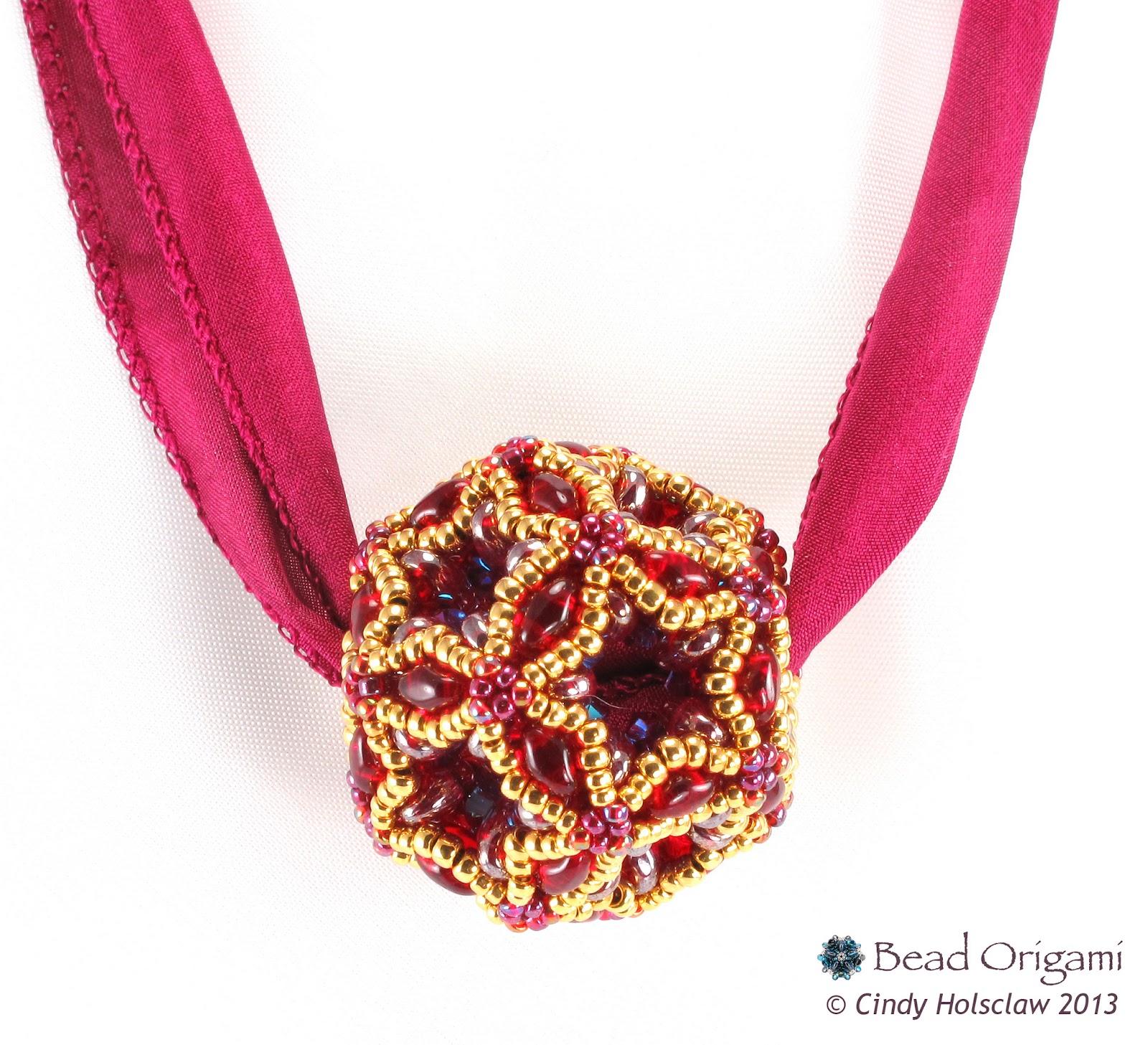Option 1: String on a Thin Cord
The holes of the Fiberoptic Dodecahedron Pendant can easily accommodate a twisted nylon cord. This 3 mm cord will fit through two adjacent holes, but I needed to use a small crochet hook to get the cord through both of them without it getting lost in the middle of the pendant.
Option 2: String on a Chain
Another, slightly easier option is to use a simple chain. With a very thin gold chain, the Fiberoptic Dodecahedron Pendant almost looks like it's floating in air.
Option 3: String or Knot on a Silk Ribbon
A third option is to string it through a silk ribbon. I needed to use a large-eye needle to get the ribbon through the pendant, but I experimented with a couple of different ways to string it. The first is through two adjacent holes as shown in the previous two options above:
The next method is through two opposite holes:
I also went back to the two-adjacent-hole stringing method, and I tied a loose knot between the pendant and the rest of the silk ribbon. I like how this knot makes the ribbon form more of a V-shape, but I'm not sure if it really complements the pendant...
Option 4: Combine With the Mini Beaded Bead
The last stringing option that I tried was to string it through adjacent holes with the silk ribbon, and then through the complementary mini beaded bead. I think I like this method better than the knotted method.
The pattern for the Fiberoptic Dodecahedron Set, which includes instructions on how to weave the pendant, the mini beaded bead, and a matching pair of earrings, is available exclusively at beadorigami.com.
What's your favorite way to string a complex beaded pendant?







What a gorgeous bead! I like it best with the smaller bead.
ReplyDeleteI tend to string my beaded beads on a plain black neck wire, and this is nice for a more casual look, but I really like the look of the ribbon. It looks so elegant! :)
Thanks Sarah! I'm really digging this ribbon idea, and I think I'll be using it for other pendants in the future too!
ReplyDelete